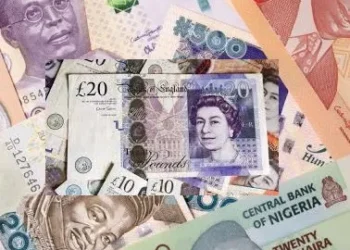In a surprising turn of events, the Nigerian Naira witnessed an appreciation against the US Dollar on the unofficial parallel market, commonly known as the black market, on Wednesday. This development comes after a period of persistent foreign exchange pressure that had pushed the Naira to as low as N1,310 per dollar.
On Wednesday afternoon, the exchange rate stood at N1,300 per dollar, marking a notable 0.76% increase, equivalent to a N10 gain, when compared to the N1,310 rate recorded on the black market the previous day.
The recent improvement in the Naira’s exchange rate follows a period of heightened volatility in Nigeria’s foreign exchange market. Just a day before, the Naira had experienced a significant depreciation of 6.86% against the US Dollar. This drop came after the Naira had managed to strengthen by 1.85% against the dollar on the preceding Monday at the Nigerian Autonomous Foreign Exchange Market (NAFEM).
The situation had raised concerns about the stability of the Nigerian currency and its impact on the economy. However, the Naira’s slight recovery on Wednesday brings a glimmer of hope.
This is not the first time the Naira has shown signs of appreciation in recent times. On October 3, 2023, the Naira had appreciated by 0.79%, gaining N8 against the US Dollar. The sporadic appreciation and depreciation of the Naira indicate the volatility and unpredictability of the foreign exchange market in Nigeria.
The persistent foreign exchange pressure, partly caused by a growing demand for the US Dollar, is one of the key factors contributing to these fluctuations. The Central Bank of Nigeria has been working diligently to maintain stability in the exchange rate, even though the parallel market remains a significant part of the Nigerian foreign exchange landscape.
In related news, the Federal Government recently announced plans to allocate $10 billion to stabilize the Naira. Additionally, the government is closely monitoring the Nigerian National Petroleum Corporation (NNPC) for potential foreign exchange interventions, signaling the importance of stabilizing the Naira in the country’s economic strategy.
While the Naira’s appreciation on Wednesday provides some relief, its long-term stability remains a priority for Nigeria’s economic health. The Central Bank and relevant authorities continue to grapple with the challenges posed by the foreign exchange market, aiming to find solutions to ensure the Naira remains resilient in the face of external pressures.









